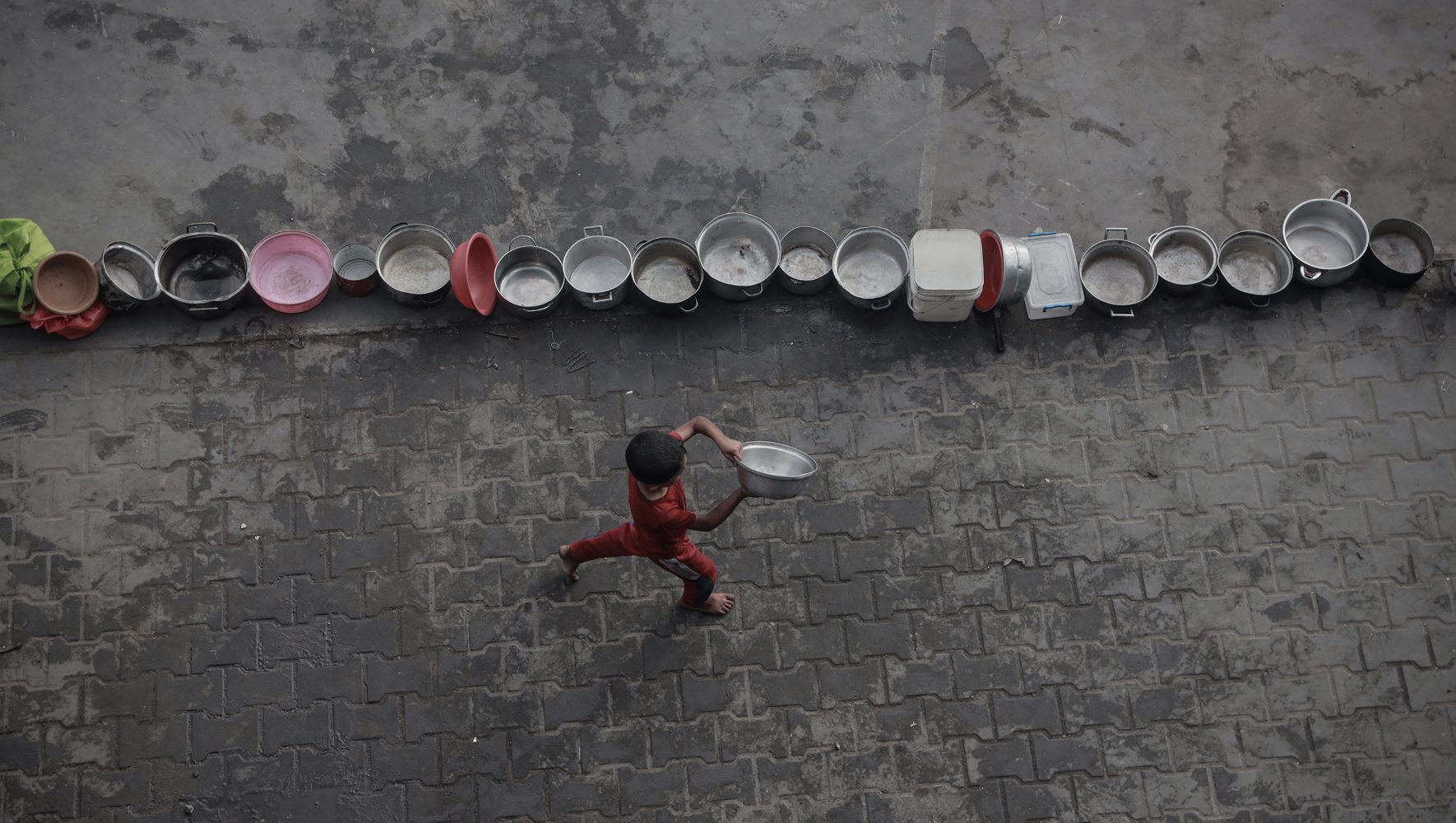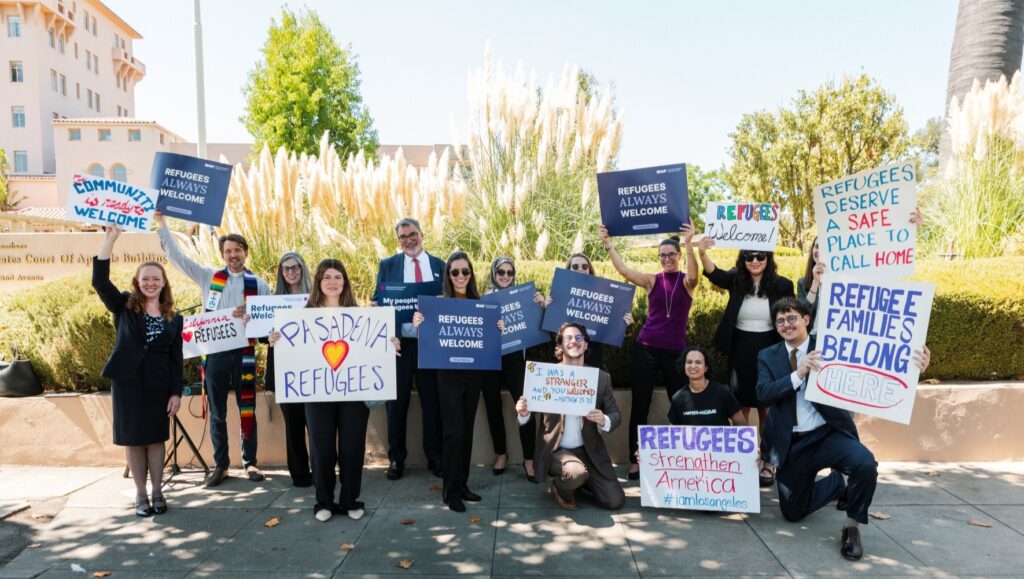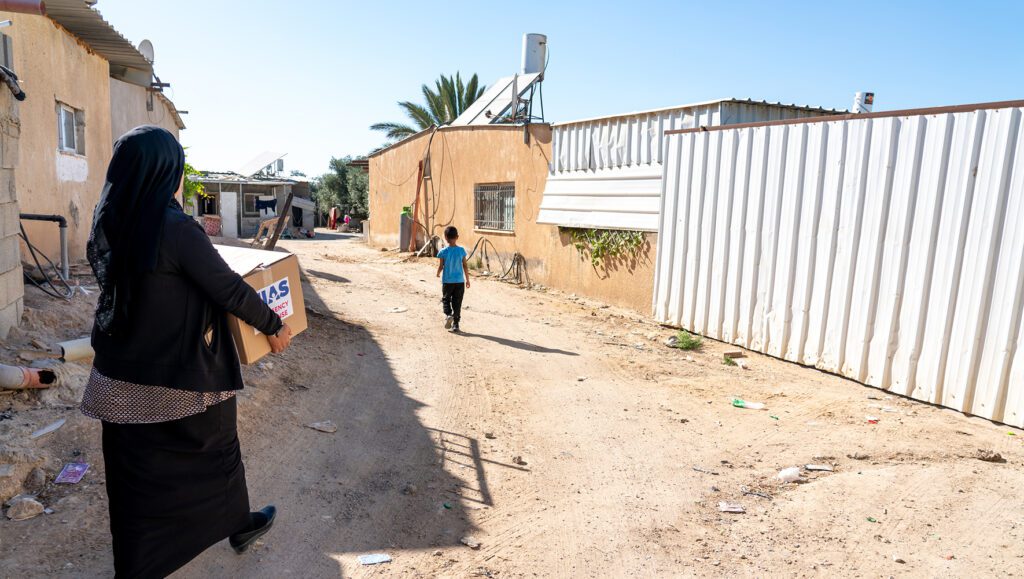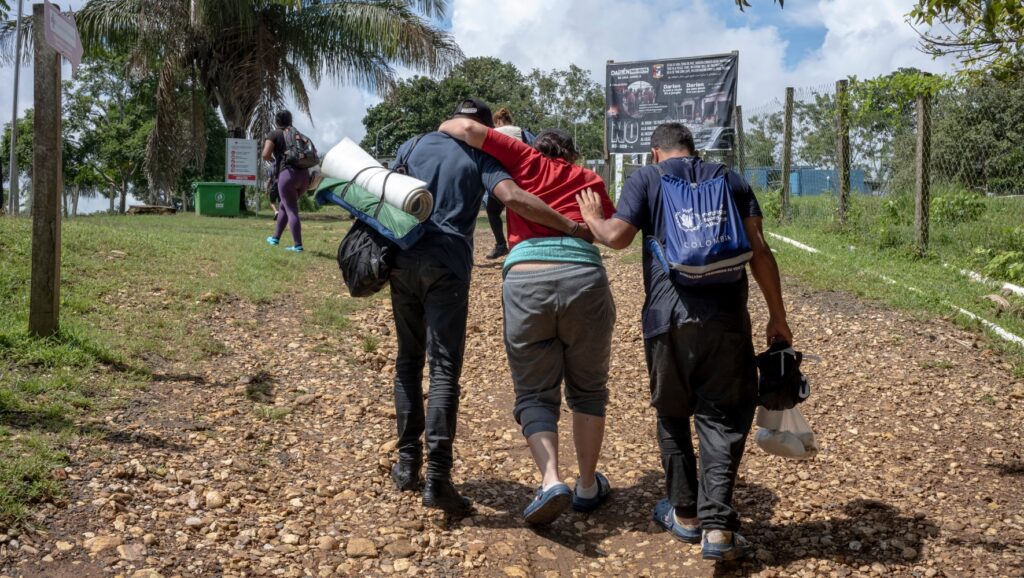
The humanitarian crisis in Gaza has reached a critical tipping point — both in its severity and in the public consciousness. Indelible images of suffering children and the growing number of deaths from hunger-related causes have made it impossible to justify or contextualize the status quo. A consensus is emerging that there can be no rationale, even in the complexity of war, for the horrors we are witnessing in real time. Thankfully, a diverse range of Jewish organizations have issued statements and clergy are giving sermons demanding unimpeded aid. More than 1100 rabbis signed this letter demanding urgent humanitarian relief.
HIAS has consistently called for aid to reach civilians in Gaza — and in many other humanitarian crises around the world — as consistently as we have called for the release of the hostages. We do so in anguish for the pain this conflict has caused and in the desire for all human life to be viewed as sacred. Gaza needs a massive and unobstructed aid effort to save lives, including those of the hostages. This call is grounded in our dual and complementary identity as both a Jewish and a humanitarian organization.
HIAS’ work providing aid around the world — from Israel to the U.S., Chad to Ecuador — serves all those suffering regardless of race, religion or politics. We are guided by the core humanitarian principles of humanity, impartiality, neutrality and independence from any government. This is true across region and time — there is no separate standard for anyone. Our calls are informed by decades of experience and understanding of how these crises unfold, and their immense and long-lasting human impact. The harrowing conditions we are witnessing now were foreseeable and predictable given the restrictions imposed.
Give today
Providing aid, especially in conflict, is an inherently challenging and imperfect enterprise. But aid agencies, including humanitarian actors working in Gaza, are steadfastly committed to the humanitarian principles because we know their value. This commitment should not be mistaken as a tolerance for the gross moral misconduct of any one side. Our humanitarian community has learned over decades — often at the cost of the lives of staff — how to deliver aid impartially, effectively, and transparently based on need, not politics.
Humanitarian organizations by our nature are deeply invested in the integrity of aid delivery. We are the first to seek out and address any flaws and abuses even as we challenge mischaracterizations of their pervasiveness. Whatever one’s critiques are of traditional humanitarian infrastructure and delivery, we are now witnessing in real time the consequences of their intentional abandonment.
People are people — equally holy and equally deserving of safety, home, and of food when they are hungry. The Jewish people know all too well the consequences of a selective interpretation of human worth and dignity.
The Jewish people know all too well the consequences of a selective interpretation of human worth and dignity.
In this urgent moment, first and foremost, I am heartened that my voice is part of a growing cascade of so many in the Jewish community demanding the immediate, unimpeded flow of aid into Gaza that can make a difference for hundreds of thousands of civilians on the brink of starvation.
Once, God-willing, this happens, there will be a global reckoning as we ask ourselves how we got here. We will attempt to realign our moral compass so as not to find ourselves here again. Within the Jewish community, it is my fervent hope that we will look to the wisdom of our tradition that centers the God-given dignity of every person. It is also my hope that we look to the wisdom of the humanitarian principles which ensure that dignity for everyone.



